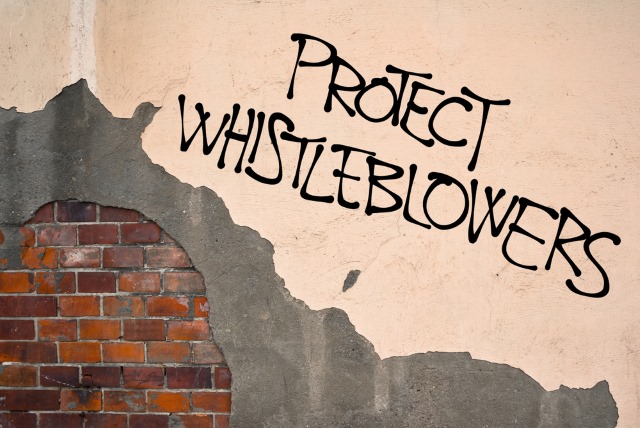Study shows that whistleblowers need greater protection due to surveillance and anti-privacy tech

A study by London University's Institute of Advanced Legal Studies (IALS) shows that journalists find it harder to protect their sources in the digital age, and suggests that whistleblowers should be afforded greater legal protection. The arrival of Donald Trump on the scene has created a greater sense of urgency.
The report, entitled "Protecting Sources and Whistleblowers in a Digital Age", says that monitoring of phone calls as well as online surveillance means it is now easier to identify sources that would otherwise have remained anonymous. People like Edward Snowden and Julian Assange have brought whistleblowing into the spotlight in recent years, and proposed changes to the UK's Official Secrets Act that would deny using "public interest" as a defense, coupled with the increased interest in surveillance mean that this is a hot topic once again.
The study has been launched in the House of Lords and it raises concerns about how the recently-introduced Investigatory Powers Act (also known as the Snooper's Charter) waters down protections that were in place. Supported by the Guardian, the report expresses concern that covert powers could be used by governments to reveal the identity of anonymous sources, and "intrusion may become apparent only if the material is used in legal proceedings."
The use of "public interest" as a defense for leaking classified information -- something that Assange, Snowden and Chelsea Manning would turn to -- is flagged up as an area of concern in the report:
It is a thorny legal problem about what should be considered as "journalism", and so it is difficult to predict who -- or what activity -- will benefit from this defence. Additionally, even if journalists are better protected in law, we must not neglect the question of whether sources and whistleblowers are adequately protected.
There is particular concern about the fact that protective legislation does not reflect changes in technology: "Technological change means that journalists, freelancers and publications are faced with previously unprecedented difficulties in protecting their sources. The technological protections for sources have not kept pace with the ability of states and other actors to use technology to intercept or monitor communications." Referring to the Investigatory Powers Act as "one of the most draconian surveillance regimes", the report says that the human rights of both journalists and their sources need to be considered.
Referring to the new US president, an update to the report emphasizes the importance of being able to properly protect sources:
Finally, it is surely not contentious to say that Donald Trump's tenure as President of the United States has had a turbulent start. The new president takes an unprecedented approach to his dealings with the media and his use of social media. Events -- such as the disclosures leading to the resignation of US national security adviser Michael Flynn -- highlight the value and importance to democratic debate of whistleblowing in the public interest. This demonstrates, in our view, quite how important it is that journalists who receive such material are able to protect their sources. If this were not the case, the public would not see material that helps provide a clearer and accurate picture of important contemporary events -- particularly vital when the US administration has expressed such overt hostility to the mass media.
Image credit: M-SUR / Shutterstock